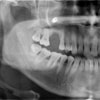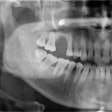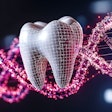Lower diversity in the oral microbiome may be linked to more severe depressive symptoms, suggesting that targeting oral bacteria could offer promising options for diagnosing depression. The study was published in BMC Oral Health.
However, this association may vary across different patient demographics, the authors wrote.
“Oral microbiota diversity was significantly negatively correlated with depression, and this correlation varied by race and gender,” wrote the authors, led by Xichenhui Qiu of the Shenzhen University Health Science Center in China (BMC Oral Health, June 5, 2025, Vol. 25, 914).
The cross-sectional study investigated the link between depression and oral microbiome diversity using data from 15,058 adults in the 2009-2012 U.S. National Health and Nutrition Examination Survey. Oral rinse samples were analyzed using 16S rRNA gene sequencing to profile the oral microbiome, they wrote.
Researchers assessed alpha diversity using the observed number of amplicon sequence variants (ASVs) and beta diversity using Bray-Curtis dissimilarity. Depressive symptoms were measured using the Patient Health Questionnaire (PHQ)-9 scale, with alpha diversity as the primary predictor.
In the unadjusted model, a higher number of observed ASVs was linked to a lower risk of depression (odds ratio [OR], 0.76; 95% confidence interval [CI], 0.63 to 0.87; p < 0.001), and this association remained significant after adjusting for confounding factors (OR, 0.85; 95% CI, 0.69 to 0.99; p < 0.01), they wrote.
In the fully adjusted model, alpha diversity was negatively correlated with depression (OR, -0.51; 95% CI, -0.79 to -0.23; p = 0.003). Also, beta diversity differed significantly between participants with and without depression (p = 0.001). Sensitivity analyses showed this relationship was especially strong among non-Hispanic white participants (OR, 0.16; 95% CI, 0.07 to 0.35) and men (OR, 0.14; 95% CI, 0.06 to 0.30).
However, the study had limitations. Due to its cross-sectional design, it could not be determined whether changes in the oral microbiome were the cause or the result of depression, the authors added.
“Nevertheless, this study contributes meaningfully to the growing body of literature on the association between depression and oral microbiota diversity,” Qiu and colleagues wrote.




















